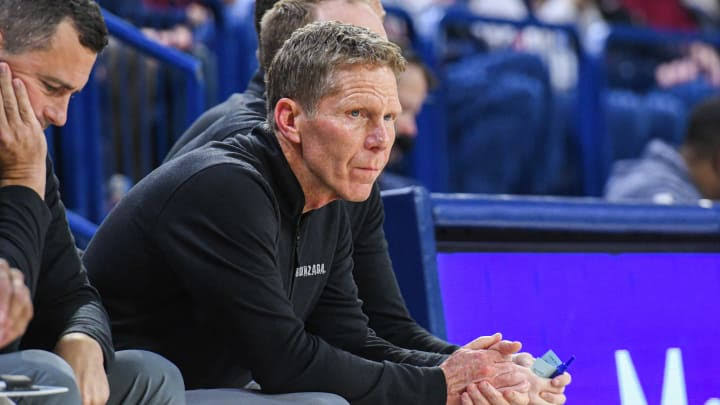
North Carolina’s head coach Hubert Davis recently sparked controversy with a statement directed at Gonzaga’s Mark Few. The comments have generated considerable debate among basketball enthusiasts and analysts alike. Here’s an in-depth look at the situation:
Hubert Davis, who took over as the head coach of the North Carolina Tar Heels in 2021, has been known for his candid and sometimes provocative remarks. His latest statement, aimed at Mark Few, the esteemed head coach of Gonzaga, has intensified discussions about coaching philosophies and the dynamics between college basketball programs.
In his statement, Davis criticized Few’s approach to scheduling and tournament play, suggesting that Few’s strategies might undermine the competitiveness of Gonzaga’s program. Davis argued that Few’s tendency to schedule less challenging opponents and avoid high-stakes non-conference games could be a strategy to ensure a high ranking and potentially an easier path through the NCAA tournament. Davis contended that such practices might diminish the credibility of Gonzaga’s achievements and the overall competitive integrity of the sport.
Mark Few, who has led Gonzaga to numerous successful seasons and consistently high rankings, has been a prominent figure in college basketball. His team’s success has often been attributed to their impressive performances in the West Coast Conference and their ability to compete at a high level against various opponents. Few’s scheduling decisions have been a topic of debate before, but Davis’ comments have brought renewed scrutiny and criticism.
Davis’ statement touches on a broader issue within college basketball: the balance between maintaining a strong, competitive schedule and achieving favorable rankings and tournament positions. Coaches often navigate a complex landscape where they must balance their team’s development with the realities of the selection process and the need for high seeding in the NCAA tournament.
Critics of Davis’ comments argue that his remarks might be an attempt to deflect attention from North Carolina’s own challenges and shortcomings. By targeting Few and Gonzaga’s scheduling practices, Davis might be attempting to shift the narrative away from his own program’s performance and struggles. Others believe that Davis’ critique is a valid point of discussion that highlights ongoing issues in college basketball, such as the need for more standardized scheduling and ranking criteria.
Supporters of Davis argue that his comments reflect a genuine concern for the fairness and integrity of the sport. They believe that addressing these issues openly can lead to more transparency and improvements in how college basketball programs are evaluated and ranked.
In conclusion, Hubert Davis’ controversial statement about Mark Few has ignited a significant conversation about the state of college basketball, coaching strategies, and the integrity of the sport. While opinions on the matter vary, the discussion underscores the ongoing debates within the college basketball community and the challenges faced by programs striving for excellence and fair competition.





